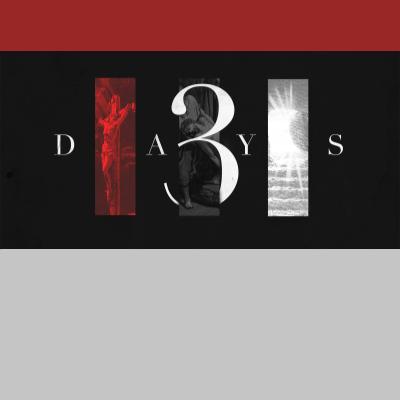Living in the Shadow of the Resurrection – The Night They Arrested God – 1 of 4
SERMON SUMMARY
Jesus’ sufferings begin with his prayer in the Garden of Gethsemane and conclude with his crucifixion. In between we read of his arrest and the six trials that he endured. Just before all this Jesus shared a meal with his disciples and said this: “Behold, one of you will betray me.” None of the twelve knew who would betray Jesus, but the one person no one expected to falter was Simon Peter. Remember, Jesus had given Simon the nickname Peter, which means “Rock.” And there is no question about it, Peter was a man of great courage and spiritual insight. Of the twelve, Peter was the clear leader. He oozed confidence. The problem was that he was often over-confident (Luke 22:31-34). Peter’s boasting should serve as a warning to all of us, that none of us really knows our own heart (Jeremiah 17:9; 1 Corinthians 10:12). We often are most vulnerable where we think we are the strongest. Where do you feel most confident? What is the area of your greatest strength? Is it your intellect? Your faith, discernment, boldness, tenacity? Perhaps it is your self-control? Be careful, lest Satan find in that very strength an opportunity to derail you in your spiritual life. The question isn’t, “Will I ever fail?” But rather, “How will I respond when I do fail?” (Proverbs 24:16). Peter shows us that our failure need not be final. It can be formative. Character often is forged in the furnace of trial and temptation. Peter failed miserably, but he stayed in the race, and God used him mightily! Peter often gets all the bad press, but he wasn’t the only one who failed. All of the disciples deserted Christ after his arrest. Jesus prayed for Peter—and he’s praying for all of us too (Luke 22:32; Hebrews 7:25). That’s why Paul had confidence that we can withstand any temptation (1 Corinthians 10:13)—if we choose to trust God in the midst of it.
But when we do fail to trust God, what should we do next (Luke 22:32)? We should use our experience to strengthen others. Oftentimes the person best qualified to help someone who has failed is someone who has been there, done that. They understand the shame, condemnation, powerlessness, depression, despair. Some feel unredeemable—but someone who has been down that dark road only to be forgiven and restored, can offer hope and real encouragement to those who are in the midst of the struggle. No matter what you have done, no matter how great your sin, God can use your greatest failure as a door for ministry to others…if you will let him (Luke 22:35-38). Luke 22:40 is a powerful reminder of our need to pray. In fact, Jesus isn’t making a suggestion—it’s a command. Prayer is vital if we are to remain faithful to God. Jesus’ temptation was so great that even he needed to pray. Jesus was in such distress that he sweat blood, and God sent an angel from heaven to strengthen him (v. 43-44).
Jesus could have refused the cross, but of course, had he made that choice, it would have sealed our eternal judgment (John 10:17-18). Perhaps you’re experiencing a crisis of your own now? Perhaps God has made it very clear to you what he wants of you to do, but it involves giving up certain rights that you enjoy, or certain desires that are significant and important to you. Letting God have his way can be very uncomfortable, even scary. Perhaps God has put his finger on something in your life that he wants you to put aside. Whatever your struggle is, you are in the figurative garden, facing a tough decision. You are wrestling with the “cup” God has for you (Luke 22:42). You have a choice to make; a choice that may affect a lot people. Are you willing to say, “Father, not my will, but Your will be done.”? Are you willing to trust God and surrender your will to his, to take up your cross and follow Jesus in discipleship?
When Jesus had finished praying, however, he returned to find his disciples sleeping! That’s us too, isn’t it? Asleep, prayerless, unaware of and unprepared for the dangers ahead! I wonder, “Was the disciple’s cowardice and temporary defection in the face of Jesus’ arrest the result of their prayerlessness in the garden?” In contrast, notice the absolute serenity Jesus displayed after his time of prayer in the garden (Luke 22:47-53). Peter, on the other hand, had been sleeping when he should have been praying, talking when he should have been listening, and boasting when he should have been fearing, and now he is fighting when he should be surrendering (Luke 22:49–51; John 18:10)! Peter was fighting the wrong enemy with the wrong weapon (Ephesians 6:12; 2 Corinthians 10:3-6). Peter revealed the wrong attitude and trusted in the wrong energy.
APPLICATION / CHALLENGE
Satan prowls about like a roaring lion, seeking whom he may devour. He is a tempter, an accuser, a liar, a murderer and a thief, so we must…
- …prepare ourselves, by cultivating the discipline of consistent, reliant prayer—both throughout the day, as concerns arise, and special seasons of “Gethsemane praying” for alarming troubles.
- …not allow past failures to derail you; failure can be the backdoor to successful ministry.
- …follow Peter’s example! When ministering to others, use weapons appropriate to the battle.
TAKE ONE STEP
Each week, write down one doable concrete step of obedience, small or large that you will put into practice this week. (James 1:22: “But prove yourselves doers of the word, and not merely hearers who delude themselves.”)


